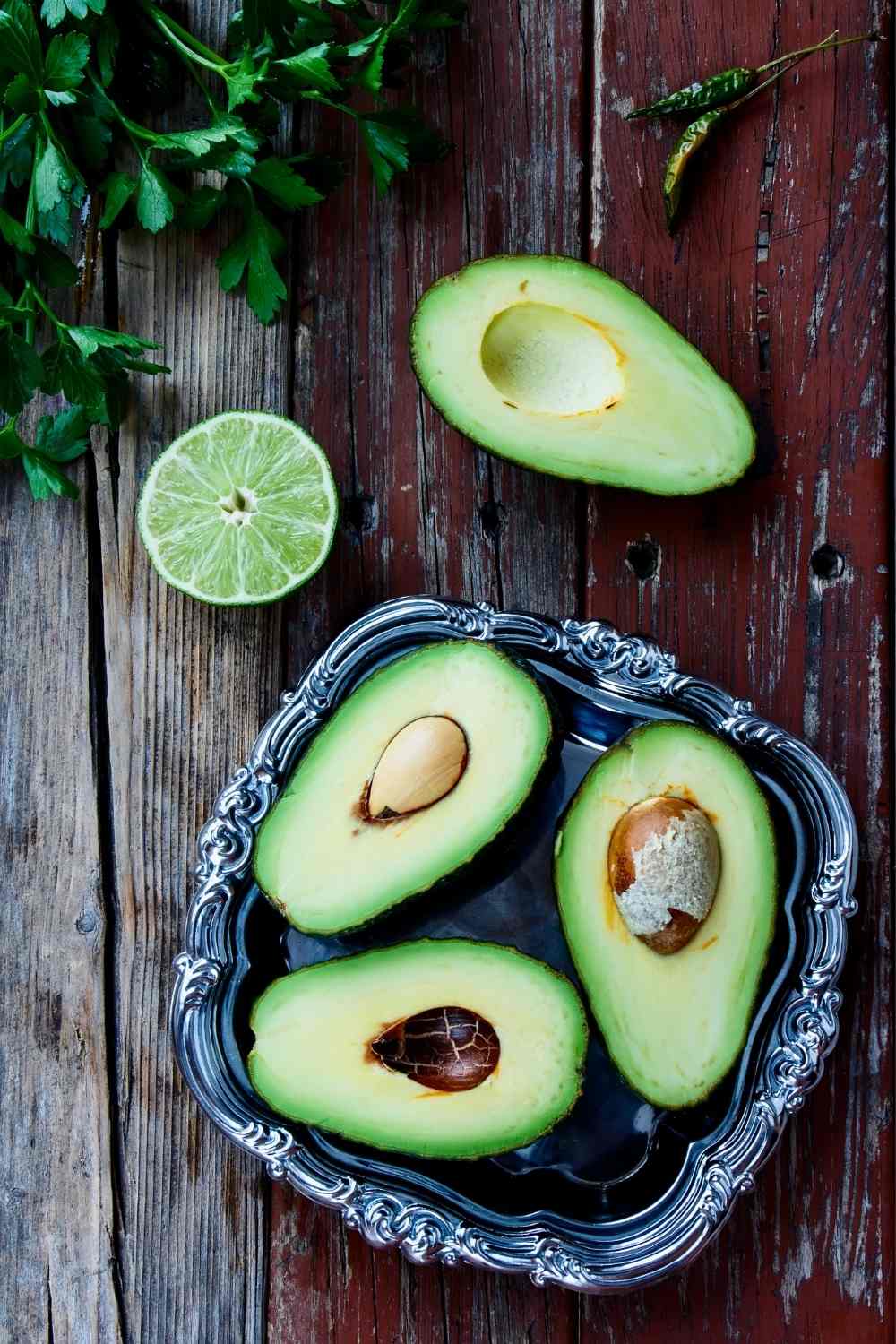Avocados can be used to help people lose weight in a variety of ways. Because of its high-fat content, it's easy to reject the avocado's weight-loss potential. Its weight loss characteristics are aided by the fact that its fat is healthful.

Avocados can assist you in losing weight in the following ways:
Jump to:
- Avocados may assist with weight loss by reducing abdominal fat
- Avocados have a filling effect on the stomach
- Avocados can assist in lowering bad cholesterol levels
- Avocados Can Help Lower Your Diabetes Risk
- Avocados Are Beneficial During Pregnancy
- Avocados aid in digestion and help to prevent constipation.
- Avocados aid in the absorption of nutrients
Avocados may assist with weight loss by reducing abdominal fat
With each passing day, belly fat is growing more prevalent. Diets and exercise programs are most commonly used to lose weight and, more specifically, belly fat. What if I told you that avocados are the solution to your bloated stomach?
A study was conducted on the different types of fat consumed and abdominal fat. In addition to a heart-healthy weight-maintenance diet of fats, the 121 persons were given an additional 40 gram serving of one of five oils.
The findings revealed that after four weeks, those who consumed monounsaturated fat-rich oils (canola and high-oleic canola oils) had a smaller stomach. When compared to persons who continued to take other vegetable oils, these people were able to lose 1.6 percent of their abdominal fat. This demonstrates that simply changing your diet to include healthier options can help you reduce your chances of developing certain diseases and losing weight. Avocados, which are strong in monounsaturated fats, may have a comparable effect on abdominal fat, despite the fact that the study didn't look into it.
Avocados have a filling effect on the stomach
Filling foods are those that are high in fats and fiber. A filling effect prolongs the feeling of being full. This equates to fewer calories consumed, resulting in weight loss. Avocados are high in both fiber and fats, whereas most foods are either heavy in fats or high in fiber. It's quite filling as a result of this.
Researchers conducted a trial to test if adding half an avocado to a meal could make one feel satisfied for longer. People who added half an avocado to their noon meal (an additional 112 calories) raised their food satisfaction by 23% and reduced their desire to eat for the next 5 hours by 28%, according to the findings. This demonstrates that avocados make you feel fuller for longer, resulting in you eating less and, perhaps, losing weight.
Avocados can assist in lowering bad cholesterol levels
Remember how we talked about how there are healthy fats and bad fats? Fat is classified as either healthy or detrimental depending on its impact on blood cholesterol levels. Avocados can also help you lose weight by lowering your bad cholesterol levels. LDL cholesterol is linked to an increased risk of inflammation, obesity, and cardiovascular disease, among other things. Avocados can assist enhance cardiovascular health by decreasing serum LDL cholesterol, according to a meta-analysis.
The major goal of the study was to see how avocados affected total cholesterol (TC), low-density lipoprotein cholesterol (LDL-C), high-density lipoprotein cholesterol (HDL-C), and triglycerides. Avocado eating significantly reduced the levels of TC, LDL-C, and triglycerides, according to the findings.
Avocados can help you lose weight in a variety of ways. Avocados are high-calorie foods to keep in mind. Even though they offer weight-reduction characteristics, consuming huge amounts of them may result in weight increase rather than weight loss. You must strike a balance so that you do not overdo or underdo it.
Avocados Can Help Lower Your Diabetes Risk
This is yet another benefit of avocado. First and foremost, because of its low sugar content, it aids in the prevention of diabetes.
Vitamin K is another method that can help minimize diabetes. Vitamin K is one of the vitamins that can be obtained from avocados. Vitamin K regulates sugar metabolism and insulin sensitivity, among other things.
A study was conducted to see if dietary intake of phylloquinone and menaquinone is linked to the risk of type 2 diabetes. Vitamin K is typically found in two forms: vitamin K1 (phylloquinone) and vitamin K2 (menaquinones). The findings revealed that consuming these two types of vitamin K is linked to a lower risk of developing diabetes. Avocados are high in vitamin K, which means they may help to lower the risk of developing type 2 diabetes.

Avocados Are Beneficial During Pregnancy
Avocados are high in folate, which is why they are good for you. Folate has been shown to help women have healthy pregnancies. Folate aids in the prevention of pregnancy issues such as miscarriages.
Avocados aid in digestion and help to prevent constipation.
Avocados have a high fiber content, which contributes to this. Fiber is believed to help avoid constipation and keep bowel movements regular. It also aids in the maintenance of a healthy digestive tract.
Avocados aid in the absorption of nutrients
The importance of nutrients in our bodies cannot be overstated. What good is it to eat nutrient-dense meals if your body isn't going to absorb them? Adding lipids, such as those present in avocados, aids in the absorption of fat-soluble elements. When it comes to salads, this is quite handy. One of the reasons avocados and other monounsaturated fat sources are added to salads is for this reason. This aids in the absorption of nutrients from other vegetables and fruits.
Avocados have a variety of health benefits. It can also be prepared in a variety of ways. You can eat your avocado whole, slice it into little pieces, or use it to make salads like the cucumber avocado salad. You can also dip it in it.




